
Making the switch to solar is a win-win for everyone. With solar on your home, you enjoy lower power bills, increased energy independence, and less reliance on fossil fuels.
Solar diversifies our grid and makes it more resilient during peak demand times. Plus, when your system sends excess energy back to the grid, neighboring homes benefit. Solar’s value should be a no-brainer, right? We sure think so!
As costs come down, solar power is becoming much more accessible, which means it’s important for the real estate industry to stay informed about these exciting changes – and learn how to properly value them.
Whether you’re buying, selling, or just determining the value of your solar PV system, this guide is for you.
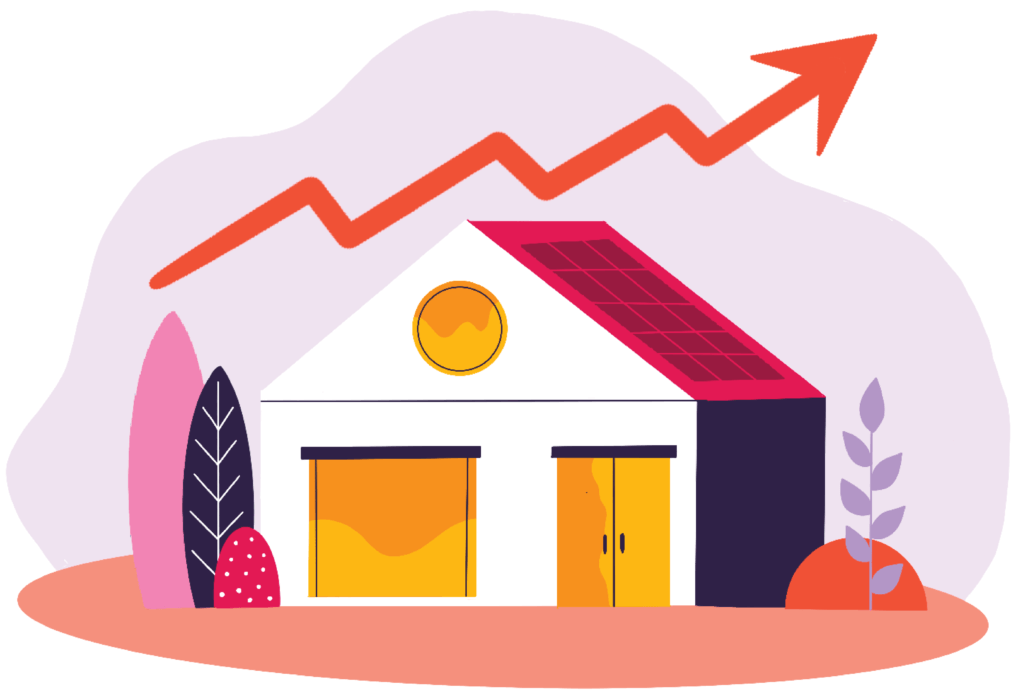
Solar Increases Home Value
Will solar add value to my home? We get this question a lot. After all, solar can be a big investment and recouping costs is always top of mind. The short answer is yes! But there’s more to it than that.
The best way to see the value of a solar upgrade is to stay in your home long enough to see a return on investment. In Florida, this period is around 10-12 years depending on system size and energy needs. For some, solar is a long-term investment and may not be suitable if a move is imminent. That’s why solar is a great option for folks who have found a forever home.
The biggest determinant of home value and solar is whether you own or lease your system.* A leased solar power system is not considered real property and will add $0 to an appraisal and $0 to a potential buyer. That’s why it’s best to own your system either by paying in cash, or taking out a loan through a solar finance company.
*SunFarm Energy does not lease solar power systems.
But… By How Much?
Researchers at the Lawrence Berkeley National Laboratory and mortgage guarantor Fannie Mae, concluded in a study that was conducted from 2011 through 2020 that owned solar power systems are likely to increase the value of the home by the system price. That means that whatever you paid for your solar power system, it’s likely to increase the value of your home by around that amount. However, solar is similar to other home renovations. You don’t always expect to get a dollar for dollar return on something like a kitchen remodel or finished basement. Solar is similar.
You can calculate the exact value of your solar PV system using PVValue.com, an initiative from the U.S. Department of Energy. This online tool factors in system age, size, location, equipment, degradation, local utility rates, and more to provide you with the most accurate value of your system. You can also learn more about green features and home value from the National Association of Realtor’s Sustainability Report, an annual unbiased report based on surveys of brokers and realtors that details specific data about energy efficient upgrades and how they impact property value.
In addition, depending on market conditions, interest rates affect your property value more than any other factor – including solar. Make sure you stay on top of market trends if you’re thinking of selling your home in the near future.
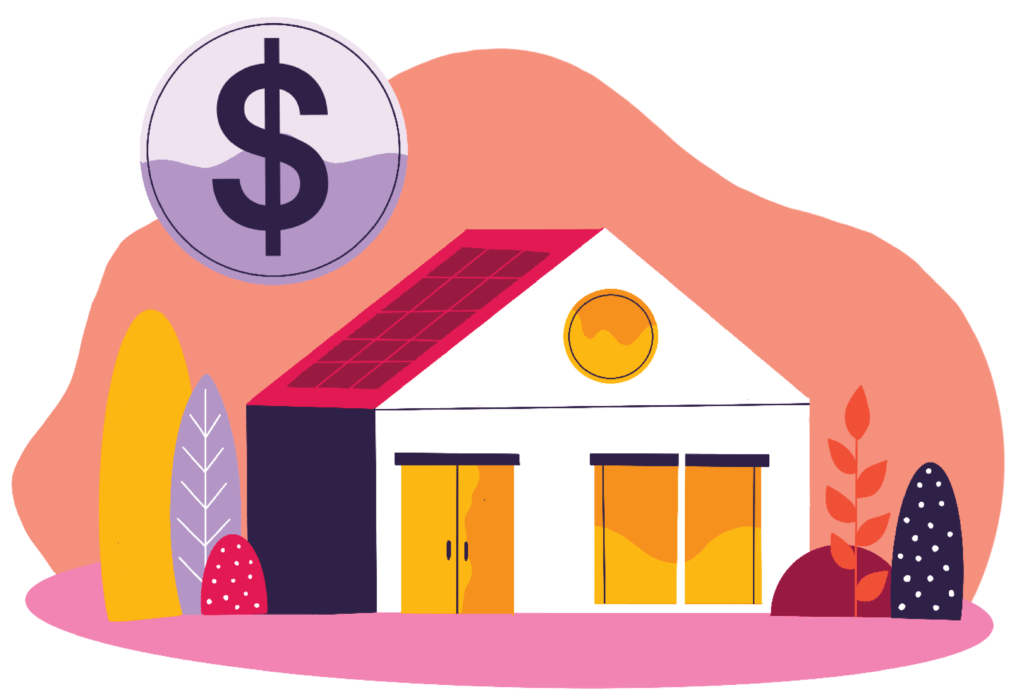
I’m Buying a Home With Solar – What Should I Know?
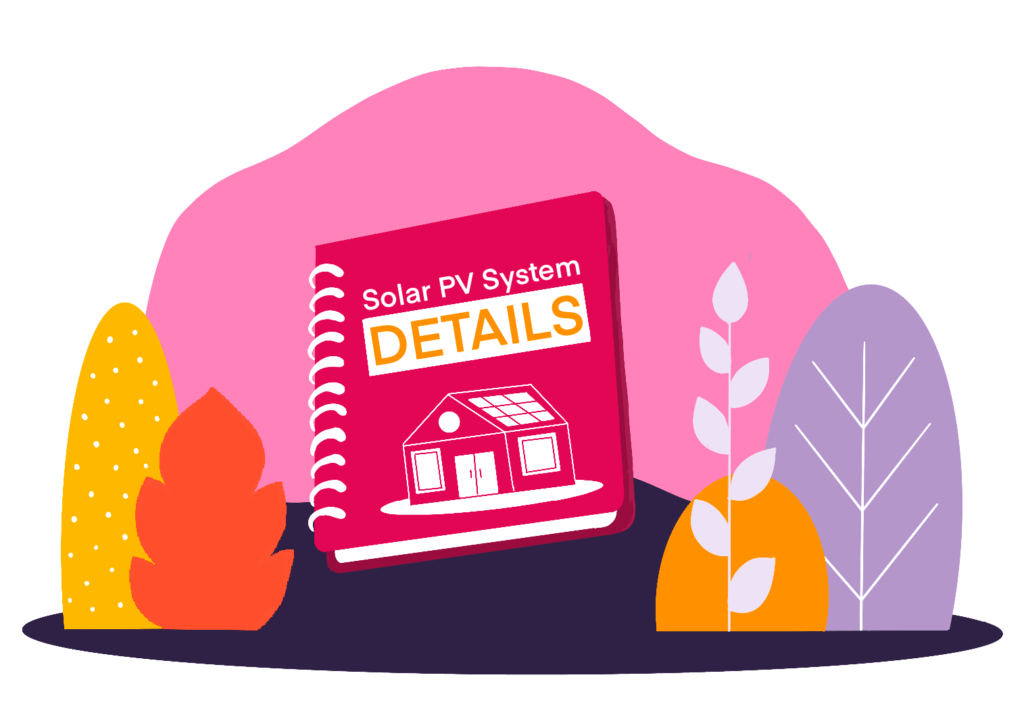
Ask for System Details
If you’re purchasing a home with solar, it’s important to ask for past utility bills, warranty information, and the energy-production/saving history of the system.* That way, you have an idea of how much the system has made an impact on energy savings before you even move in. Ask the seller if the solar PV system is financed or paid up front. In most cases, sellers will pay down the remaining balance on a financed system with the proceeds from the sale. However, in some cases, the loan can be assumable by the buyer.
*Each SunFarm Energy client receives an Owner’s Manual with this information when their installation is completed.
Familiarize Yourself With Local & Federal Incentives & Policies
Industry experts urge buyers to become familiar with local and state incentives for solar power systems, especially net metering. Pay attention to the latest in solar news, especially around the Federal Tax Credit. For example, homeowners who add battery to an existing solar PV system can claim the 30% tax credit even if it’s already been used on the existing solar array.

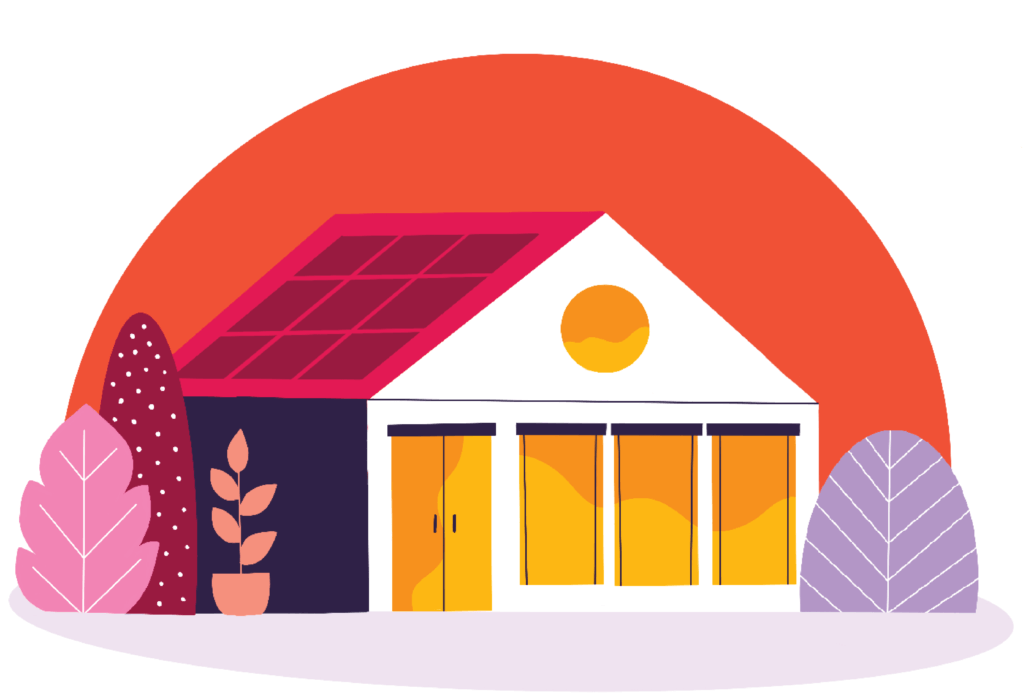
Take a Closer Look at the Roof
Be sure to take a closer look at the condition of the roof. Solar companies should never install a system on a roof that would need replacement within five years. However, if there are roof issues, keep in mind that the solar power system will need to be removed before roof replacement and reinstalled once replacement is complete. If this is necessary for the solar home you’re considering, you may seek price concessions to cover this cost.
I’m Selling My Solar Home – What Should I Know?
Hire the Right Realtor
If you do decide to sell your home with solar, finding the right realtor is key. A realtor cannot take on a solar transaction if they don’t have the education to do so. Make sure the heavy hitters on your team (your appraiser, realtor, and/or bank) are well educated about solar. Ask your realtor if they have sold homes with solar before, or if they have taken the National Association of Realtors’ Selling the Sun Class, or carry a Green Designation. Make sure your appraiser knows how to value solar on your property. You may even ask the bank for a specialized appraiser.

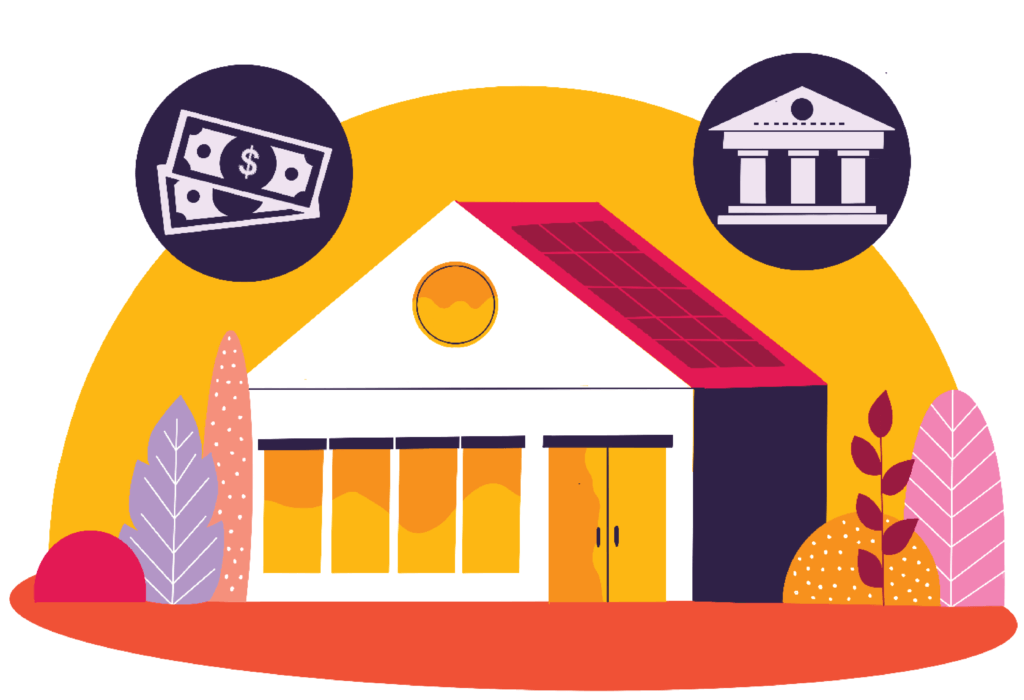
Know Your System Type & Take a Look at Your Loan
Whether your system was paid in cash or you have a solar loan through the finance company, it’s best to own rather than lease your system when you go to sell. Leased systems add $0 value to your home and won’t be considered in an appraisal. You may also be asking a buyer to assume the lease of a system that doesn’t match up with their energy needs.* If you have a remaining loan balance, it’s best to pay off that loan with the proceeds from your home sale. It’s also possible for the potential buyer to take on the rest of the loan, but be sure to check with your loan terms to see if it’s assumable.
*SunFarm Energy does not lease solar power systems.
Gather & Provide Key Documents
The more information you can provide about your system the better. In some situations you may have to educate the buyer on the value of your system. Be sure to keep all contracts, system specs, projected production numbers, utility bills, and warranty information to share with a prospective buyer.*
*Each SunFarm Energy client receives an Owner’s Manual with all of this information when their installation is completed.
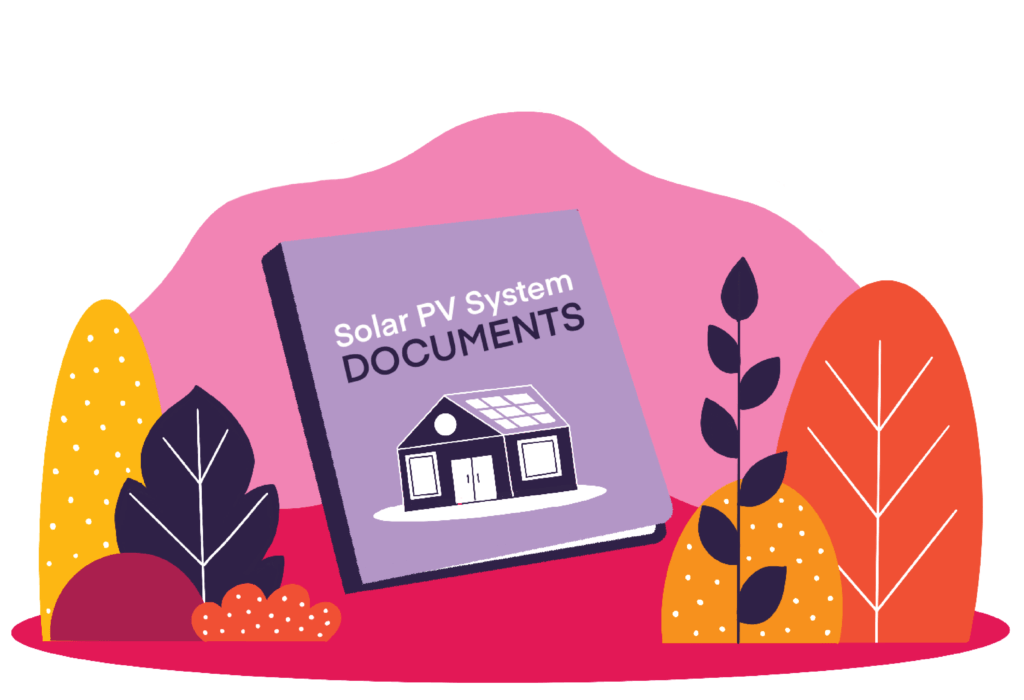
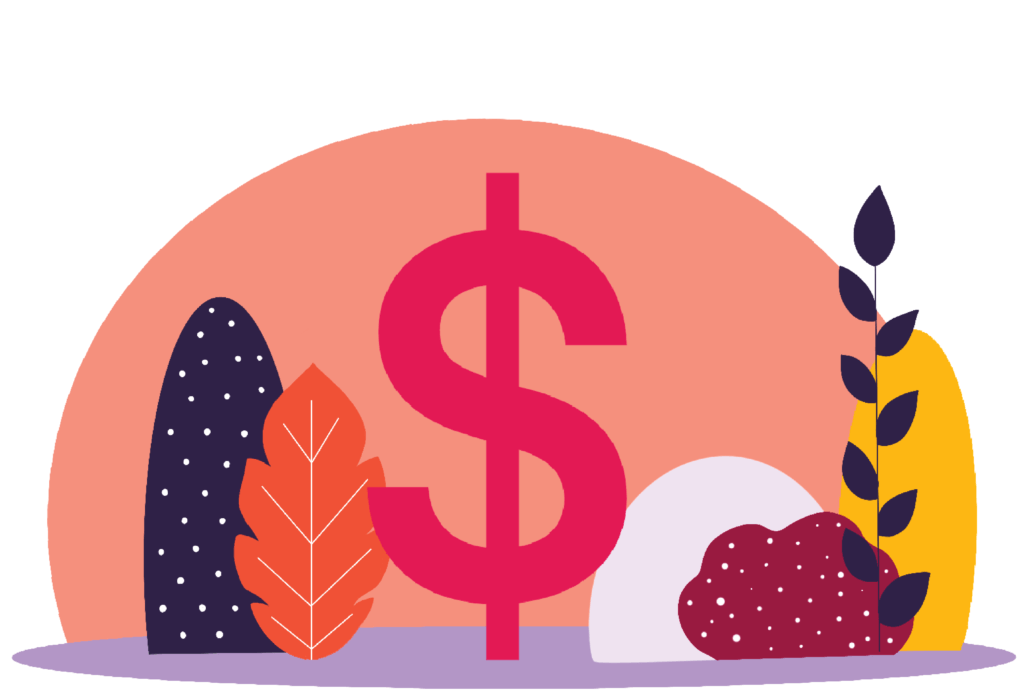
Find the Value of Your System
It’s widely accepted that green features increase a property’s value, but the amount varies. You can find the exact value of your solar PV system by using PVValue.com, an initiative from the Department of Energy. You can also find more information in the National Association of Realtors’ Sustainability Report, an unbiased report based on surveys of brokers and realtors that details statistics on green features and property values. However, keep in mind that rate trends may affect your property value more than any specific feature, including solar. Pay attention to the news on interest rates and be ready to list when it looks like they may be trending down.